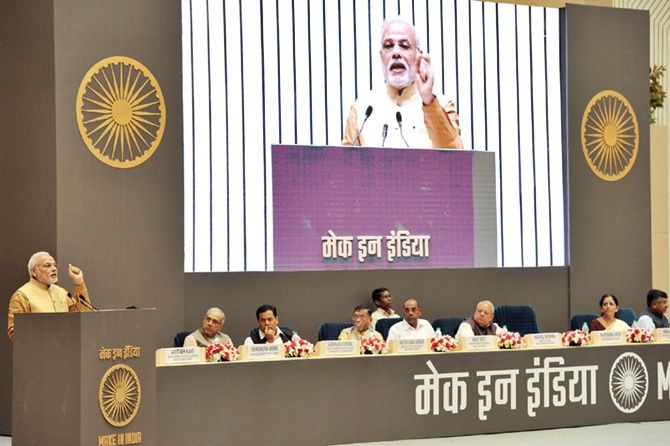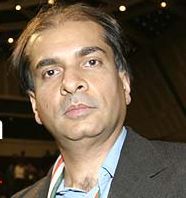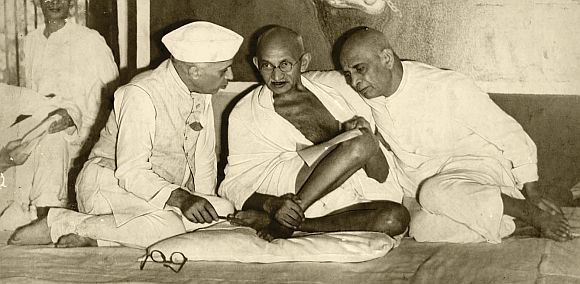 'We cannot ignore the role of public institutions in driving development... I don't see much focus on institutional renewal.'
'We cannot ignore the role of public institutions in driving development... I don't see much focus on institutional renewal.'
Sunil Khilnani, director, India Institute, King's College, London, and author of The Idea of India, visited New Delhi to address the 'Rethinking the Nehru Legacy' conference at the Nehru Memorial Museum and Library.
Professor Khilnani, image, below, spoke on 'Nehru and the Making of Asia's Future,' dwelling on how Nehru had shaped India's position in Asia and the world.
Upasna Pandey spoke with Professor Khilnani.
We are reflecting on how Mr Nehru and the leadership of that time shaped India's foundation. How do you see their role? Do you think things could have been done faster or differently?
Sure, things could always have been done differently, but given the circumstances we were in post Independence, I believe we stood to benefit tremendously from the approach and vision of Nehru and the entire political leadership of the time.
This finds validation when we compare how India has fared and remained stable as against many other post colonial nations which did not survive the initial years of independence while India not only survived, but grew in strength over the years of development.

Mr Nehru is credited with creating a policy framework and democratic institutions.
One of Nehru's biggest contributions to modern India is the establishment of various public institutions like the Planning Commission. Nehru was a pragmatic leader and would definitely understand the need for dissolving the Planning Commission now as it had become more of a documentation mechanism.
What is important is that such bodies are not dissolved simply because they are part of the Nehruvian era, but we have a serious and deep debate to chalk out the alternatives and re-inventing these.
The problems of disparities between different states and investments getting diverted to few states continue to bog India. Nehru and the leaders of post-Independent India created institutions to address these problems and these persist today, so the need for re-invention.
There is a lot of focus on Prime Minister Narendra Modi's personality. How does this compare with Mr Nehru's time?
It is great to have focus on our leadership and the PM's personality and vision, but we cannot ignore the role of public institutions in driving development.
Such institutions are not expected to deliver results not in five or 10 years, but in a longer span of around four or five decades which we need to focus on. I don't see much focus on institutional renewal happening right now.
There is a political clamour over the Nehru-Gandhi legacy.

The legacy of Gandhi and Nehru is part of India's national imagination and a matter of national ownership. It goes beyond the ownership of those defending or those who are critical of its legacy.
We need to pay tribute to the entire leadership of their era by ensuring there are serious thought provoking discussions and debates on national issues, which was practiced during post-Independence India.
There used be fierce difference of opinion between Gandhi, Nehru, Sardar Patel and other leaders, and the Constitutional debates hold testimony of the plurality of thought in Parliament.
These leaders were focused on the common goal of India's progress and acknowledged a diversity of views. Political parties today can revive this culture as a tribute to the era of Nehru-Gandhi leadership.
How relevant is Nehruvian economic vision in India's present growth journey?
We need to understand that Nehru believed in the model of redistribution of wealth and the need for the State to play a role in ensuring that the benefits of growth reach all. This remains an area which needs the government's attention even today.
There are many critical areas where the private sector will simply not want to play a role, so the State's role in reducing disparity among different sections of society continues to be important.
The State can learn from Nehru's pragmatism in re-inventing policies, programmes, approach and thinking strategically to drive the progress of the nation.
Image: Top: Prime Minister Narendra Modi at the launch of the Make in India campaign. Photograph: Press Information Bureau.
Bottom: Jawaharlal Nehru, Mahatma Gandhi and Vallabhbhai Patel.










